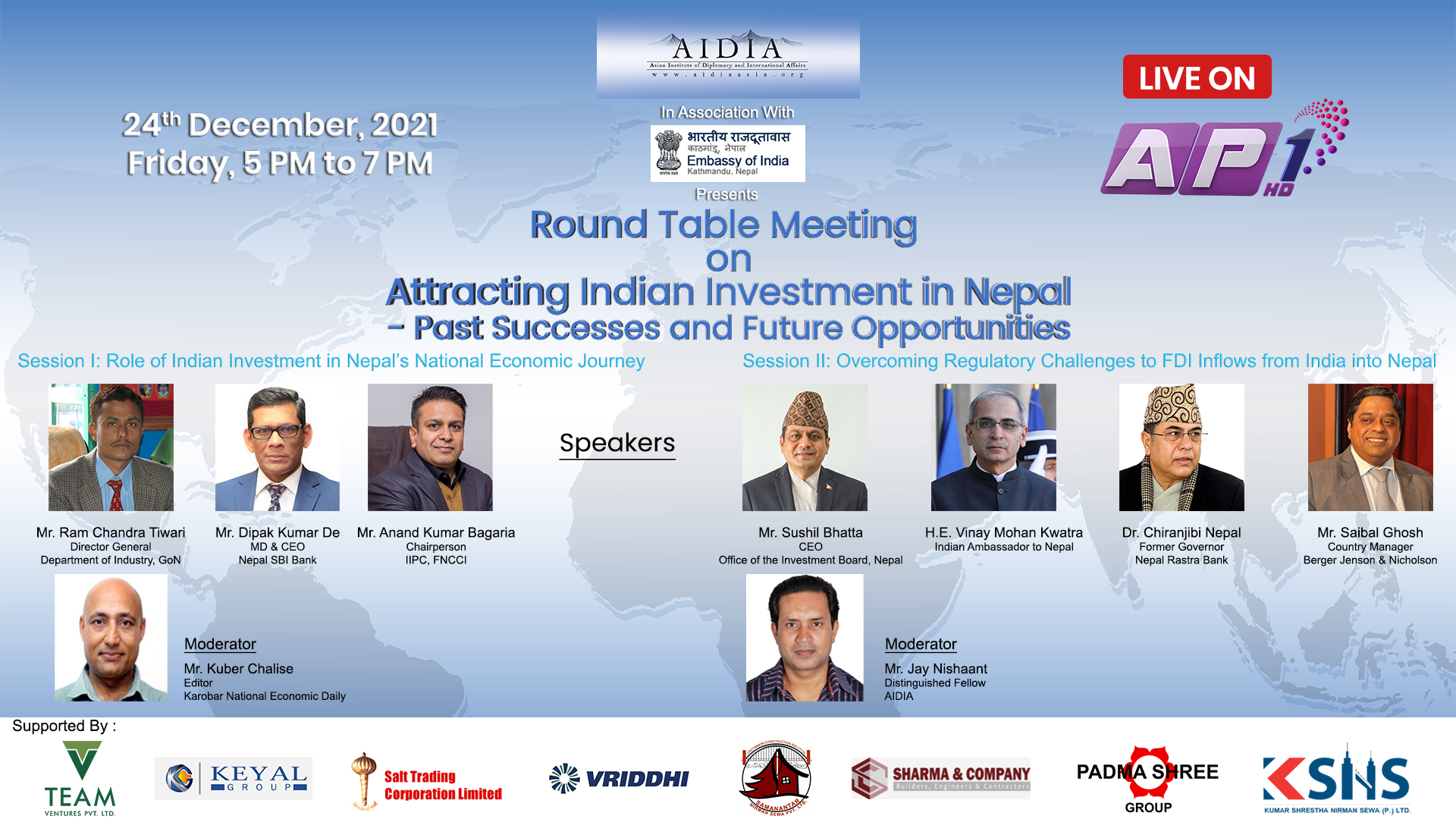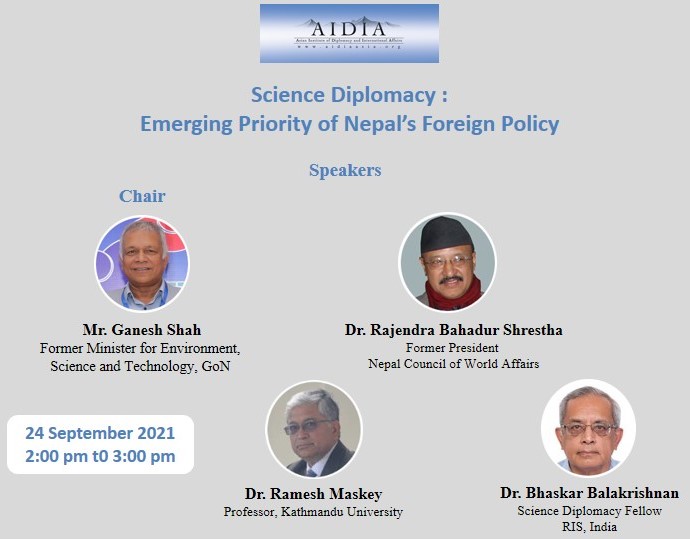The initial efforts of the countries in the world to contain coronavirus was to act alone, seizing borders and implying lockdowns which led to disruption in global supply chains and fall in regional economic activities. However, it soon became clear that only acting together will meet the challenges of the crisis.
International organizations and regional integrations have called for collective approaches at the regional and global level. The ASEAN members including their three plus counterparts held video conferences to act collectively on the containment of the virus and mitigation of challenges posed by COVID-19 pandemic. Similarly, the SAARC countries conducted a video conferencing on 15th March 2020 where COVID-19 emergency fund worth of $
It is promising that such efforts and initiations are being made, however greater international cooperation is needed to ensure these efforts to produce the best outcomes. SAARC and ASEAN being the most important regional organization in Asia should come together. The crisis offers an opportunity to learn from each other, show unity, strength and solidarity. This webinar on ‘SAARC-ASEAN on COVID-19 Impacts in the Economy’ intends to invoke leaders from both regional organizations to work collectively to respond and mitigate the upcoming economic threats being posed by the COVID-19 pandemic.
SESSION I- COVID 19 and its impact ASEAN economy
The Association of South-East Asian Nations, popularised as the ASEAN has seen a collaboration of ten countries with an aim to improve economic growth and maintain regional stability. However, much like every other sector that has been significantly affected by the outbreak of the Coronavirus pandemic, the fatal virus is set to leave its grim imprints on the ASEAN economy too. With stringent social distancing measures and stay-at-home orders, there has been a subsequent shift to digital diplomacy. The global recession resultant of the pandemic is reminiscent of the Asian Financial Crisis (1997-1998). However, unlike the fallout of the Asian Financial Crisis, ASEAN countries today are better equipped to combat the repercussions of the pandemic.
With the implementation of social distancing and containment strategies, global supply chains have been disrupted, global demand has been significantly impacted and the stage is set in south-east Asia for welcoming an economic tsunami.
The economic fallout of the Covid-19 pandemic is expected to adversely impact the following three sectors:
- Export
- Tourism
- Domestic Demands
ASEAN economy is a major contributor to the global economy and trade. With an abrupt halt to tourism in the wake of the pandemic, Singapore and Thailand might emerge as the worst-hit countries. Until the advent of a global vaccination to eliminate the virus, exports from countries like Vietnam, Philippines, Singapore, etc. shall remain at a standstill. Finally, with the implementation of strict social distancing measures and containment orders, domestic demand shall significantly drop in the region. At a time when the global future seems uncertain, it is imperative for the ASEAN economies to come together and revisit the scope of regional cooperation.
Panelists:
Mr. Bounphieng PHEUAPHETLANGSY, Deputy Director, Division of Strategic and International Studies, Institute of Foreign Affairs, Lao PDR
Ms. Jessica Wau, Assistant Director, ASEAN, Singapore Institute of International Affairs (SIIA), Singapore
SESSION II-COVID-19 and impact on SAARC economy
A recent survey conducted by the World Bank puts South Asia on the verge of facing the worst economic fallout due to the pandemic- something not witnessed in the last 40 years. The unprecedented and unfortunate crisis, which has wreaked havoc worldwide, has called in all SAARC countries to collaborate in terms of international travel bans, implementation of strict containment strategies, announcement of relief packages and so on. One of the largest among the SAARC group is India- a $
Meanwhile, a SAARC Joint Emergency Relief Fund has been set up where member countries have pledged to donate.(India: $
India, for instance, has cut the interest rate and provided a three-months' moratorium on loan repayment. Pakistan's Imran Khan has announced a Rs. 1.2 lakh crore relief package for vulnerable groups and a Rs. 7,500 crore package allotted to small, medium business enterprises. According to Sheikh Hasina, Bangladesh has offered a relief package amounting to nearly 3.5% of the country's GDP. Sri Lanka, one of the worst economically affected, is thinking in terms of a brief engagement with the Reserve Bank of India. With no tourists on the go, Nepal's hotel business has witnessed a 90% decline in income and a $
Panelists:
Mr. Kamal Dev Bhattarai, Current Affairs editor at The Annapurna Express
Mr. Kithmina Hewage, Research Economist, Institute of Policy Studies of Sri Lanka (IPS), Sri Lanka
SESSION III- SAARC and ASEAN relations during COVID-19
COVID-19 has successfully exposed the frailties of the globalised world in combating a lethal virus of mass destruction. As South Asia emerges as an epicentres of the Coronavirus pandemic, it has called for a coordinated response from the world order. In the light of mitigating the crisis emanating from the Covid-19 pandemic, the SAARC and ASEAN have joined hands to announce coordinated regional relief measures. Child agencies such as Child Fund, SOS Children's Villages, Child Rights Coalition Asia, Plan International and so on, have urged the SAARC and ASEAN to formulate and implement policies aimed at protection of children in the midst of a pandemic.
Regional Executive Director of Child's Rights Coalition Asia, Amihan V. Abueva said, "We have received extremely worrying reports from several counties that domestic violence is on the rise. Governments of ASEAN and SAARC must put children’s well-being at the centre of the pandemic response." Regional responses framed by the associations will be exemplary to the world, which is still grappling with the pandemic infused repercussions.
Panelists:
Dr. Sreeradha Dutta, Centre Head & Senior Fellow, Neighborhood Studies, VIF, India
Dr. Juita Mohamad, Head of the Economics, Trade and Regional Integration Program, ISIS Malaysia, Malaysia
Mr. Him Raksmey, Research Fellow, Cambodia Institute for Cooperation and Peace, Cambodia
SESSION IV- SAARC and ASEAN relations post COVID-19
The post Covid global order will inevitably set the stage for increased regional cooperation and collective multilateral efforts. Coronavirus will be a game changer in international politics in a non Covid world. The pandemic has already sparked off distrust across economies and geographies. A post Covid world is all set to build a stage for increasing regional integration where regional blocs like BIMSTEC, SAARC and ASEAN are set to play a major role.
The indispensable relationship between regional organisations has been visible since time immemorial. For instance, the African Union (AU) and the Food and Agricultural Organisation (FAO) of the UN had come together to ensure food security in Africa. The Covid pandemic has absorbed the world in a trail of health diplomacy and virtual diplomacy. Considering the severe effects of the pandemic, neither bloc has been able to put up collective mitigation strategies against the virus. Moreover, with the freshly erupted border issues such as between India and China or India and Nepal, the functioning of regional blocs is all set to take an alternative turn. What the future holds is still uncertain. However, assessing their importance and role, it is time now for them to come together and mould a global governance.
Panelists:
Dr. Masuma Hasan, Chairman, The Pakistan Institute of International Affairs (PIIA)
Dr. Chu Minh Thao, Deputy Director, Center for Security and Development, Diplomatic Academic of Vietnam, Vietnam
Partnering with:
.jpg)
Instititute of Foereign Affairs (IFA) Lao PDR
Date: 30 June 2020
Time: 12:45 PM NPT
For Prticipation please click here.
Speakers
-
H.E Mr Mai SAYAVONGS
Director General, Institute of Foreign Affairs, Lao PDR
-
Dr. Masuma Hasan
Chairman, The Pakistan Institute of International Affairs (PIIA)
-
Mr Sunil KC
Founder, AIDIA
-
Dr Sreeradha Datta
Centre Head & Senior Fellow, Neighbourhood Studies, VIF
-
Mr. Bounphieng PHEUAPHETLANGSY
Deputy Director, Division of Strategic and International Studies, Institute of Foreign Affairs, Lao PDR
-
Dr. Chu Minh Thao
Deputy Director, Center for Security and Development, Diplomatic Academic of Vietnam, Vietnam
-
Dr. Juita Mohamad
Head of the Economics, Trade and Regional Integration Program, ISIS Malaysia, Malaysia
-
Mr. Kithmina Hewage
Research Economist, Institute of Policy Studies of Sri Lanka (IPS), Sri Lanka
-
Mr. Him Raksmey
Research Fellow, Cambodia Institute for Cooperation and Peace, Cambodia
-
Mr. Kamal Dev Bhattarai
Current Affairs Editor, The Annapurna Express, Nepal
-
Ms. Jessica Wau, Assistant Director
ASEAN, Singapore Institute of International Affairs (SIIA), Singapore
-
Mr. Shyam KC
Research and Development Director, AIDIA
- Zoom Meeting


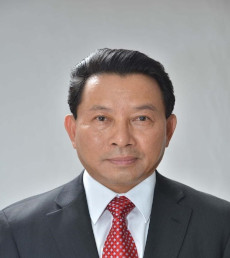
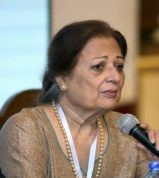


-(1).jpg)
.jpg)


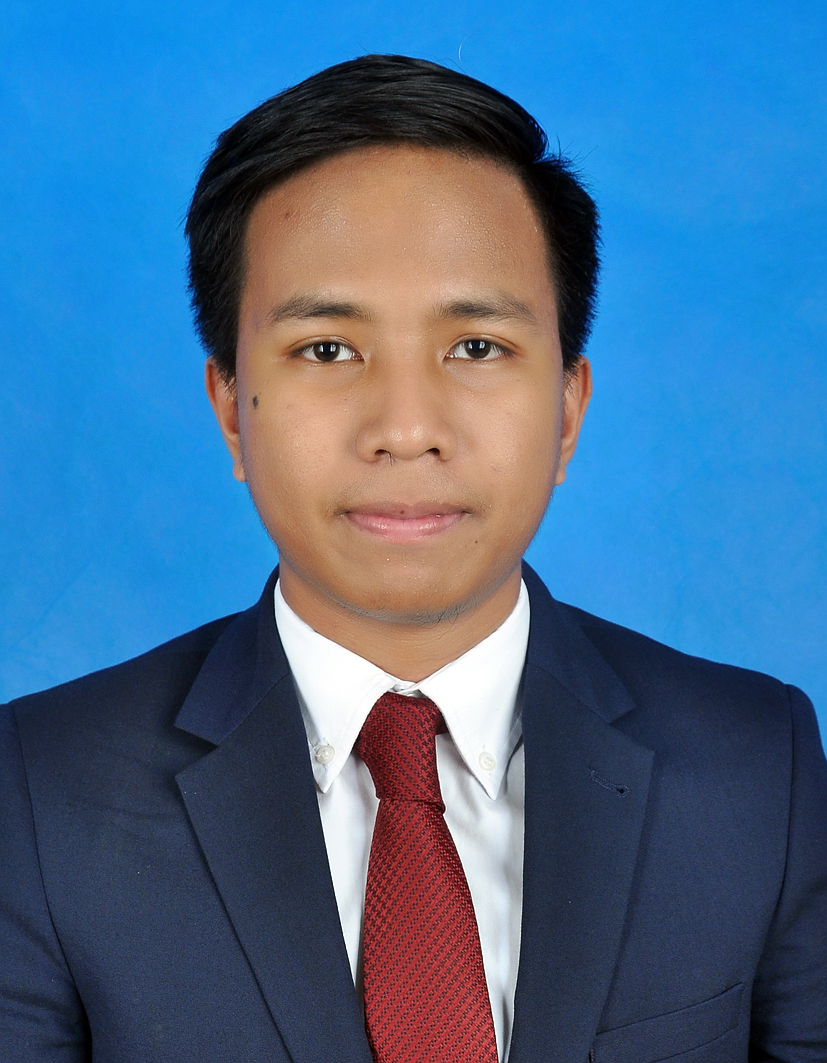

.jpg)

